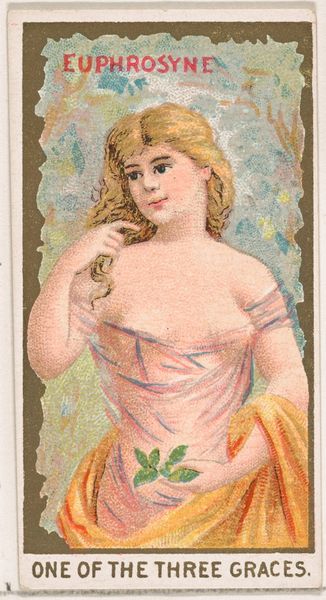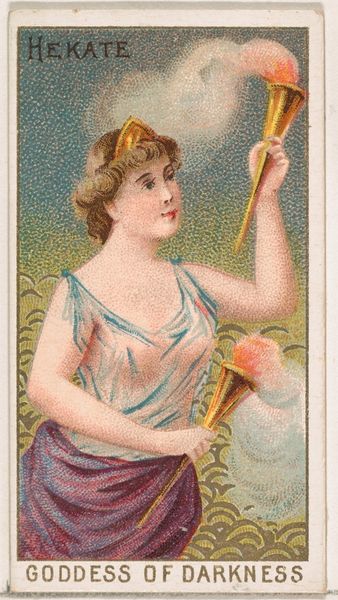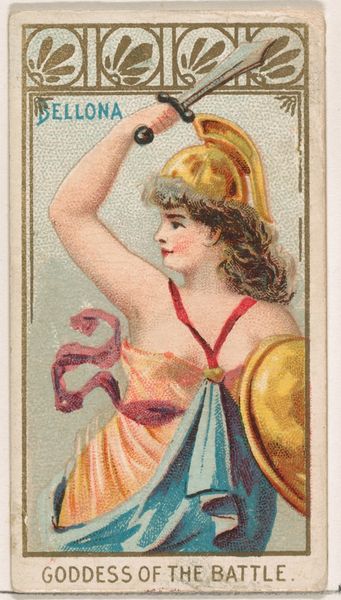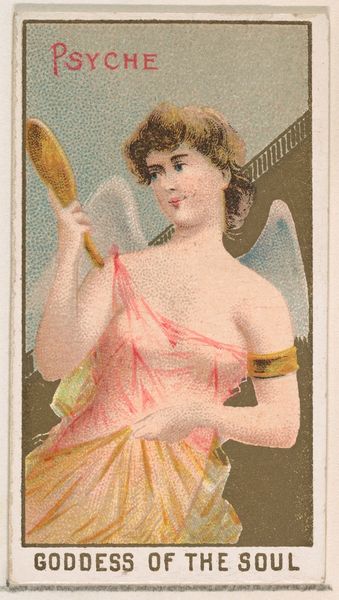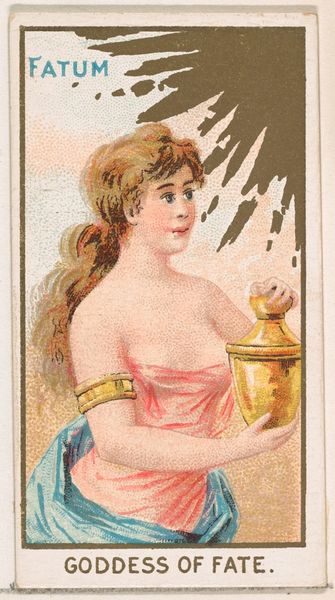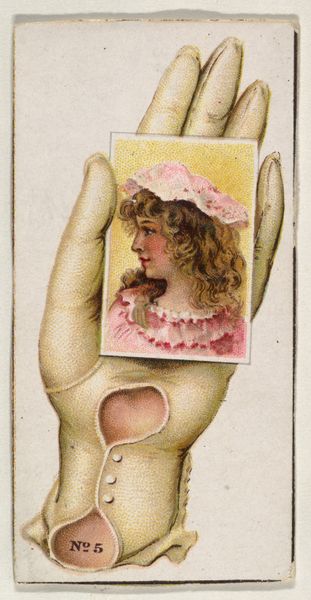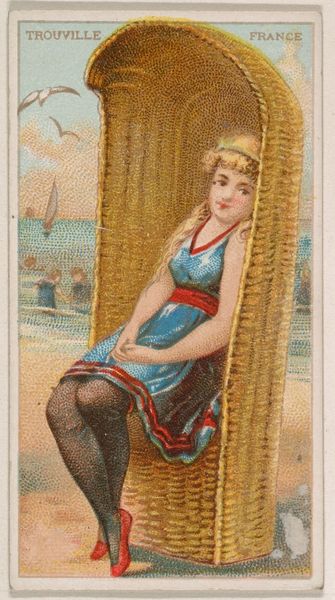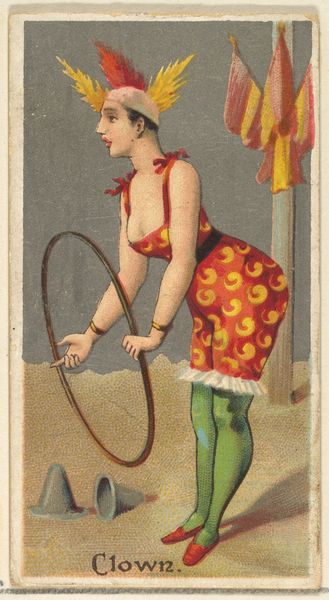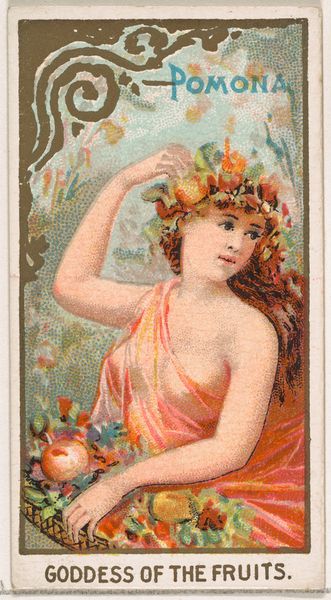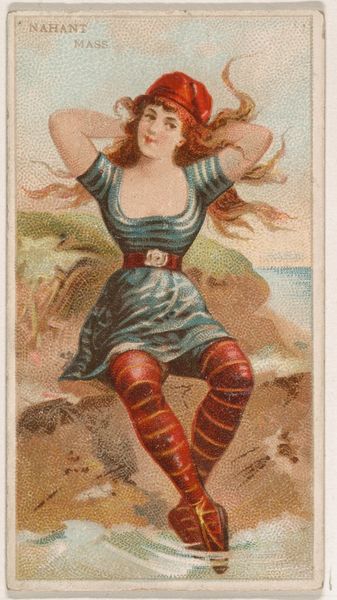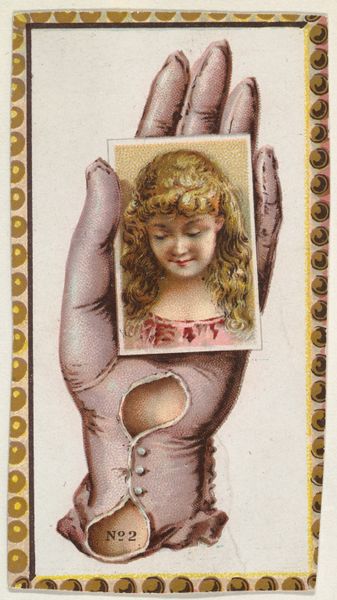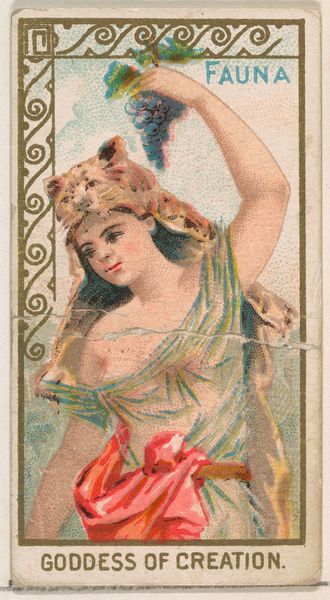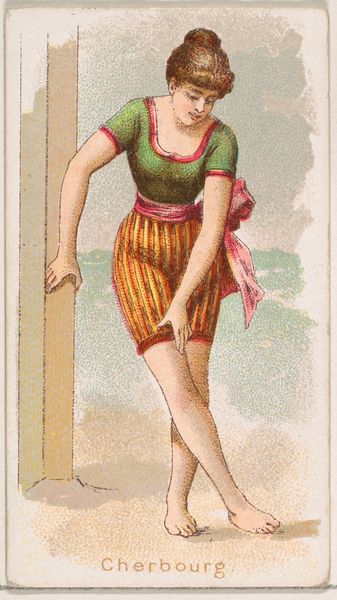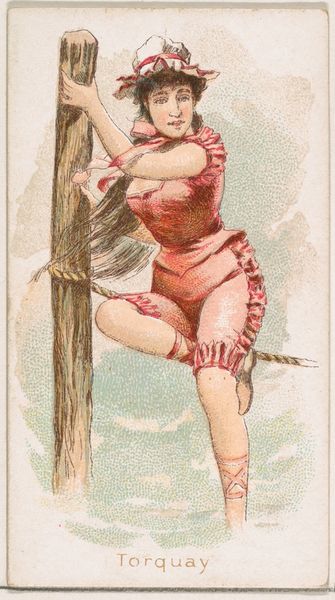
Thalia, Muse of Comedy, from the Goddesses of the Greeks and Romans series (N188) issued by Wm. S. Kimball & Co. 1889
0:00
0:00
Dimensions: Sheet: 2 3/4 × 1 1/2 in. (7 × 3.8 cm)
Copyright: Public Domain
Curator: Oh, this is lovely! "Thalia, Muse of Comedy," part of the Goddesses of the Greeks and Romans series. It was issued by William S. Kimball & Co. in 1889. Editor: It has such a sweet disposition. Almost romantic, like an old Valentine. But holding the comedy mask is a bit disconcerting, isn't it? Like she's hiding behind it? Curator: Perhaps. It is a watercolor and drawing transferred to a chromolithograph print, after all, so there’s an element of translation happening that affects the immediate emotional impact. But let's consider Thalia herself. Notice how the composition creates this diagonal dynamic? From the crook held aloft to the downward gaze on the mask she clutches. The semiotics, especially using this color palette, creates that idealized figure in this era. Editor: I see what you mean with the formal construction. However, something about the softness clashes with the slightly grotesque comedy mask. What does she actually want to do with that stick, for example? And if comedy’s her thing, where’s the spark, the glint of mischief? Curator: That dichotomy may be precisely the point. Consider the late 19th century: the constraints, especially for women, versus the inner desires, artistic impulses maybe even rebellion. This might express some degree of repressed creative liberation—her muted tones speak volumes against the potential for outright revelry the mask represents. Editor: Ah, repressed expression – I do buy that. Makes me think of a tightrope walker who's really longing to fly but remains poised to balance above that social morass instead. Looking at it this way brings a new meaning; this otherwise charming image suddenly feels weighted by deeper complexities. Curator: Absolutely. By focusing on its inherent classical and formal aspects while opening up personal associations we gain more insightful layers. It’s like peeling back a historical onion to reveal that core complexity! Editor: Indeed. I may leave this listening with some questions about my own mask now!
Comments
No comments
Be the first to comment and join the conversation on the ultimate creative platform.
